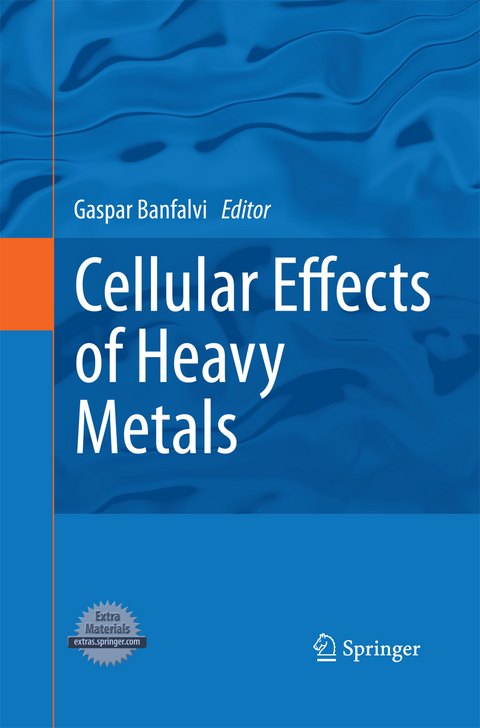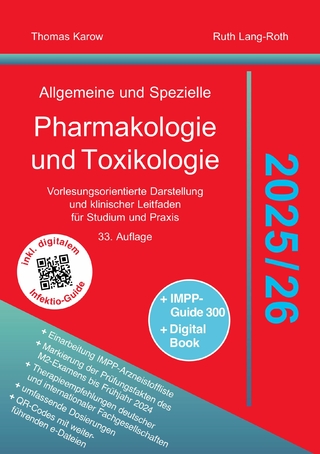
Cellular Effects of Heavy Metals
Springer (Verlag)
978-94-007-9225-8 (ISBN)
The term “heavy metals” is used as a group name of toxic metals and metalloids (semimetals) causing contaminations and ecotoxicity. In strict chemical sense the density of heavy metals is higher than 5 g/cm3. From biological point of view as microelements they can be divided into two major groups. a. For their physiological function organisms and cells require essential microelements such as iron, chromium (III), cobalt, copper, manganese, molidenium, zinc. b. The other group of heavy metals is toxic to the health or environment. Of highest concern are the emissions of As, Cd, Co, Cu, Hg, Mn, Ni, Pb, Sn, Tl. The toxicity of heavy metals is well known at organizational level, while less attention has been paid to their cellular effects. This book describes the toxicity of heavy metals on microorganisms, yeast, plant and animal cells. Other chapters of the book deal with their genotoxic, mutagenic and carcinogenic effects. The toxicity of several metals touch upon the aspects of environmental hazard, ecosystems and human health. Among the cellular responses of heavy metals irregularities in cellular mechanisms such as gene expression, protein folding, stress signaling pathways are among the most important ones. The final chapters deal with biosensors and removal of heavy metals. As everybody is eating, drinking and exposed to heavy metals on a daily basis, the spirit of the book will attract a wide audience.
Introduction. Chapter 1. Heavy Metals, Trace Elements and their Cellular Effects. I. Heavy metal toxicity in microbes. Chapter 2. Toxic Metal/Metalloid Tolerance in Fungi – A Biotechnology-Oriented Approach. Chapter 3. Interference of chromium with cellular functions. Chapter 4. Saccharomyces cerevisiae as a Model Organism for Elucidating Arsenic Tolerance Mechanisms. II. Heavy metal induced toxicity in insect cells. Chapter 5 . Heavy Metal Toxicity in an Insect Cell Line (Methyl-HgCl, HgCl2, CdCl2 and CuSO4) . III. Genotoxic effects of heavy metals. Chapter 6. Cellular Changes in Mammalian Cells Induced by Cadmium. Chapter 7. Chromatin toxicity of Ni(II) Ions in K562 Erythroleukemia Cells. Chapter 8. Genotoxic Chromatin Changes in Schizosaccharomyces pombe Induced by Hhexavalent Chromium (CrVI) Ions. Chapter 9. Chromatin Changes upon Silver Nitrate Treatment in Human Keratinocyte HaCaT and K562 Erythroleukemia Cells. IV. Chemical carcinogenesis induced by heavy metals. Chapter 10. Heavy Metal-Induced Carcinogenicity: Depleted Uranium and Heavy Metal. Chapter 11. Role of Oxidative Damage in Metal-Induced Carcinogenesis. V. Cellular responses to heavy metal exposure. Chapter 12. Non-native Proteins as Newly-identified Targets of HeavyMetals and Metalloids. Chapter 13. Cellular Mechanisms to Respond to Cadmium Exposure: Ubiquitin Ligases. Chapter 14. Metals Induced Disruption of Ubiquitin Proteasome System, Activation of Stress Signaling and Apoptosis. VI. Biomakers. Chapter 15. Blood Lead Level (BLL, B-Pb) in Human and Animal Populations: B-Pb as a Biological Marker to Environmental Lead Exposure. VII. Removal of heavy metals. Chapter 16. Removal of Heavy Metal Sulfides and Toxic Contaminants from Water.
| Erscheint lt. Verlag | 25.11.2014 |
|---|---|
| Zusatzinfo | XIV, 348 p. |
| Verlagsort | Dordrecht |
| Sprache | englisch |
| Maße | 155 x 235 mm |
| Themenwelt | Studium ► 2. Studienabschnitt (Klinik) ► Pharmakologie / Toxikologie |
| Naturwissenschaften ► Biologie ► Genetik / Molekularbiologie | |
| Naturwissenschaften ► Biologie ► Ökologie / Naturschutz | |
| Naturwissenschaften ► Biologie ► Zellbiologie | |
| Naturwissenschaften ► Chemie ► Anorganische Chemie | |
| Technik ► Umwelttechnik / Biotechnologie | |
| ISBN-10 | 94-007-9225-5 / 9400792255 |
| ISBN-13 | 978-94-007-9225-8 / 9789400792258 |
| Zustand | Neuware |
| Haben Sie eine Frage zum Produkt? |
aus dem Bereich


